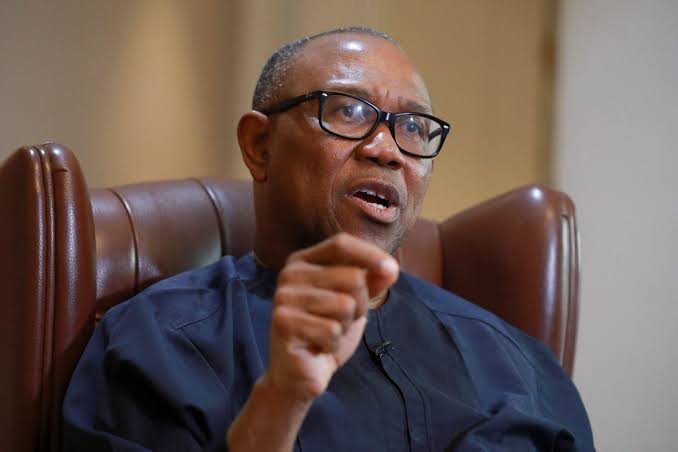Peter Obi, former Governor of Anambra State, said, it will be difficult for Nigeria to “attract sustainable foreign investment with poor leadership and governance.”
He made the statement as President Bola Ahmed Tinubu jets out of the country for Japan and Brazil.
Obi said, the “global gallivanting” by the President in search of Foreign Direct Investment (FDI), Nigeria’s “poor” performance in rule of law, government effectiveness, show that, it will not be easy for the country to pull foreign investment.
The National Bureau of Statistics (NBS) recently reported, the FDI to Nigeria “sharply” fell by “about 70%” in the first quarter of 2025.
Obi wrote on X: “FDI to Nigeria Declines Amidst Unending Global Galivanting and Uncoordinated Reforms
“While the President, Ministers, and other government officials continue their global galivanting in search of FDI, our poor performance in key governance indicators – such as rule of law, regulatory quality, government effectiveness, and voice and accountability – continues to prove that you cannot attract sustainable foreign investment with poor leadership and governance.
“According to a recent report by the National Bureau of Statistics, FDI to Nigeria sharply declined by about 70% in the first quarter of 2025, falling to only $126.29 million from $421.8 million in the last quarter of 2024. Of the total capital importation of about $5.64 billion in the first quarter of 2025, FDI accounted for only about 2.24%, compared to 8.2% in Q4 2024. Disturbingly, about 90% of the imported capital went into speculative money market instruments. With such a high proportion of capital importation flowing into speculative investments, the impact on industrial growth or job creation is highly insignificant and elusive, given the ease with which such “hot money” can exit the economy.
“Let me reiterate: sustainable economic growth and development cannot be achieved through poor leadership and weak governance—problems that are clearly reflected in declining FDI and our poor performance in key governance indicators. To further illustrate our precarious situation, capital flows to the manufacturing sector declined exponentially by 32.1%, dropping to only $129.92 million in Q1 2025 from $191.92 million in the same quarter of 2023. There is no better confirmation of the lack of trust in this government, whose reforms remain uncoordinated and largely reactive.
“In 2024, while global FDI flows declined, FDI to Africa significantly increased to $97 billion—a rise of about 75% compared to 2023. Europe, the United States, and China were the main sources of this FDI. Egypt attracted the highest share in Africa, with $46.58 billion. Other top recipients included Ethiopia ($3.98 billion), Côte d’Ivoire ($3.80 billion), Mozambique ($3.55 billion), Uganda ($3.30 billion), Democratic Republic of Congo ($3.11 billion), South Africa ($2.47 billion), Namibia ($2.06 billion), Senegal ($2.02 billion), Guinea ($1.83 billion), and Morocco ($1.64 billion).
“Most disappointingly, our dear nation, Nigeria—the so-called “Giant of Africa”—received only $1.08 billion, about 1% of Africa’s total FDI, representing a decline of about 42% from 2023. Worse still, after this 42% drop between 2023 and 2024, FDI to Nigeria has further declined by 75% between Q4 2024 and Q1 2025. We cannot achieve sustainable growth and development with ineffective leadership and a weak government.
“A New Nigeria is Possible!”



